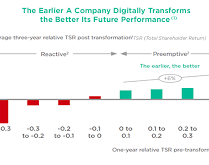According to the Sustainable Furnishings Council, sustainable business and manufacturing practices aim to minimize carbon emissions, reduce other pollutants, and remove unsustainable materials and harmful chemical inputs from all furniture product platforms. However, according to a survey by Furniture Today, "Upholstery players are taking on the sustainability challenge", sustainability is not something the furniture industry has pursued much so far, but there is an ongoing focus due to consumer push.
Just as the furniture industry is vast and varying, the responses to sustainability challenges are equally different, based on a company’s customer base, business operations, finances, sourcing options and a host of other factors.
Like most industry innovations, the interplay of consumer demand and price play big roles in whether or not a company adopts sustainable practices and, if it does, the extent to which a company will strive to include sustainability in its sourcing and manufacturing processes.
For large-scale manufacturers such as Coaster Fine Furniture, the company is not seeing a lot of demand for sustainable products from its retail base. “At Coaster this isn’t something we have pursued much, nor do we hear much from our dealer base on the subject,” said Don Deeds, executive vice president of sales and marketing.
Retail customer expectations for sustainability are stronger for manufacturers on the higher end of the price spectrum, although these expectations vary across retail partners.
Klaussner Furniture Inds. has seen the demand for sustainable products “gaining traction on a continual basis” and has the approach that “being the manufacturer, we recognize that we need to take the lead and tell the (sustainability)story to the consumer through our dealer network,” noted David Cybulski, president and CEO.
The future of sustainability and the ensuing demand for product is percolating up from consumers to retailers as well.
“I love the passion of this new generation of furniture buyers; we are seeing a massive increase in demand and inquiries from our retail and design partners about what goes into our products and how they are made,” said Rick Lovegrove, president of upholstery at Four Hands.
American Leather has also encountered a “massive consumer push for sustainability.”
President Veronica Schnitzius noted that the company’s retail partners aren’t asking for one-off sustainable products for their selling floors, but for “sustainable manufacturers as a whole.”
“Consumers are becoming more informed advocates, aligning the products they use with the values they live by,” she said.
The manufacturers that can respond to this authentic consumer passion for sustainable living will be well-situated in satisfying future sustainable wants and needs.
Of course, sustainability comes at a price, although consumers shopping at mid to higher priced retailers are more willing to pay for a product that manifests not only the comfort inherent in upholstery but also the lessened environmental impact of their purchase.
“As sustainability transforms from an option to a necessity, the consumer will ultimately drive how the value gets incorporated into the pricing,” said Cybulski. “Based on Klaussner’s efforts to-date, we’ve realized that there is an added cost to sustainability, but in the long-run the payback to the planet is worth it.”
American Leather, known for its engineering prowess, has taken a multi-pronged approach to insuring its products are developed to meet the company’s overall sustainability goals. Each frame is constructed from wood harvested from sustainable forests and is precision-engineered to create as little scrap as possible. Any scrap remaining is recycled or reused.
“Our advanced computer modeling ensures the most efficient manufacturing processes resulting in maximized usage of each leather hide and the lowest amount of wasted materials,” said Schnitzius. “Like our wood scraps, any remaining leather scraps are either recycled or resold for the production of small leather goods.”
Along with its frames, American Leather focuses on its covers and offers ‘environmentally friendly’ leathers, which use water-based pigments to minimize chemicals used in production and make the leather recyclable.
Additionally, all of its furniture styles use soy-based BiOH Polyols Renew foam cushioning that is fully recyclable and available in a wide assortment of firmness and densities. BiOH polyols are soy-based ingredients for flexible foam in upholstered furniture, and unlike traditional foam made from petroleum-based chemicals, BiOH polyols are made from a renewable resource: soybean oil.
As an added benefit, companies that manufacture product in North America and Mexico noted that the proximity to the U.S. market creates a much smaller carbon footprint than products that must be imported from overseas facilities.
In addition, to boost their environmental credibility, some companies are seeking out the imprimatur of sustainability by participating in certification processes through known third-party certifiers.
For example, Klaussner is in the process of obtaining its FSC (Forest Stewardship Council) certification to ensure that its wood is sourced in an environmentally responsible manner, and American Leather is a founding member of the Sustainable Furniture Council.
These types of certifications help to provide retailers with an easy guide for assessing the level of commitment manufacturers have to sustainability efforts.
Upholstery manufacturers’ responses to sustainability vary greatly. From all-in to not at all.
Some manufacturers are choosing to lead their production processes down a sustainable path even though their retail partners aren’t asking for this from them. For other companies, their sustainable production practices are essential to their market differentiation.
As Schnitzius of American Leather said, “The biggest comment we hear (from retailers and designers) is ‘What does it really mean to be sustainable?’ Most people interpret sustainability as using recycled materials, but it’s more than that.
“Sustainability shouldn’t just be a buzzword.”

